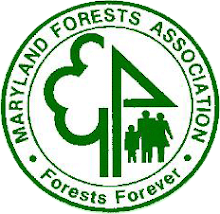Tess Hill ~ Cumberland Times-News
February 09, 2009 10:36 pm
CUMBERLAND — Delegate Wendell Beitzel has teamed up with District 33 Sen. Janet Greenip in support of a piece of legislation that will expand the High Performance Buildings Act to include two systems commonly used by Maryland tree farmers.
Senate Bill 243/House Bill 226 will “alter the definition of high performance building to include a building that achieves at least a 2 globe rating according to the Green Globes Program as adopted by the Green Building Initiative; and generally relating to the construction and renovation of high-performance buildings by the state.”
In 2008, the General Assembly passed the High Performance Buildings Act, which gave specific requirements for green buildings in Maryland. However, only one system was offered in this bill.
“Last year’s High Performance Buildings Act was a very important piece of Maryland law, but it needs to go further,” said Greenip, of Anne Arundel County, in a press release. “It left out Maryland-owned tree farmers who are an excellent source of environmentally friendly building materials.”
Beitzel agreed and said only one system was included in the bill, a system commonly used in Europe.
“In Maryland, if we’re going to mandate that we use certain building materials in high-performance buildings, then we certainly should be able to use our Maryland wood products for that purpose,” Beitzel said. “However, that bill only named one method for those buildings, the Leadership in Energy and Environmental Design Green Building Rating System.”
The LEED rating system requires wood to be certified by the Forest Stewardship Council, an expensive process that is considered too costly for operations for most Maryland tree farmers, according to forestry tradesmen.
“The Maryland Forest Association has taken an exception to the system outlined in that bill because the state’s LEED system does not allow use of wood from the classification of Sustainable Forest Initiative or the American Tree Farm System (the main systems used by Maryland tree farmers). This means, most likely, wood for our state buildings will have to come from out of state or overseas,” Beitzel said.
The SFI is a program that has created a set of guidelines in order to address key environmental, social and economic forest values. The standards set by SFI aim to promote sustainable forest management, which includes protection of water quality, biodiversity, wildlife habitat, species at risk and forests with exceptional conservation diversity.
The ATFS is a program that has established standards and guidelines to become certified tree farms and also help promote sustainable forests, watershed and healthy habitats.
“I want to do anything I can do to assist our landowners and foresters in Western Maryland. By adding these two systems, we would make sure we’re not preventing Maryland wood products from being used in these buildings if and when they are built,” Beitzel said. “This is a good bill for Maryland’s foresters. We are ensuring that Maryland’s forests and Maryland’s citizens reap the benefits from the projects paid for by Maryland’s tax dollars.”
Mimi Wright, a private landowner in Dorchester County and forest representative on the Maryland Agriculture Commission, said the current bill either totally restricts any wood other than Forest Stewardship Council certified wood or gives other certified wood a second-best rating.
“It eliminates us out of the market or we get second-best pricing,” Wright said. “(The proposed amendments) would open up over 200,000 acres of wood production for Maryland state buildings. And because it will open it up, it will have a far reaching impact to other buildings which the state provides financial support.”
Wright adds there is over 2 million acres of forest land in Maryland and 75 percent is privately owned.
“So rather than argue which certification system is best, it is more important to get more sustainable forestry practices on the ground,” she said. “Now is the time to encourage more sustainable forestry.”
SB 243 is scheduled to be heard by the Senate Budget and Tax Committee on Wednesday.
HB 226 will be heard by the Appropriations and Health and Government Operations committees Thursday.
Tess Hill can be reached at Contact Tess Hill at thill@times-news.com. Copyright © 1999-2008 cnhi, inc




No comments:
Post a Comment